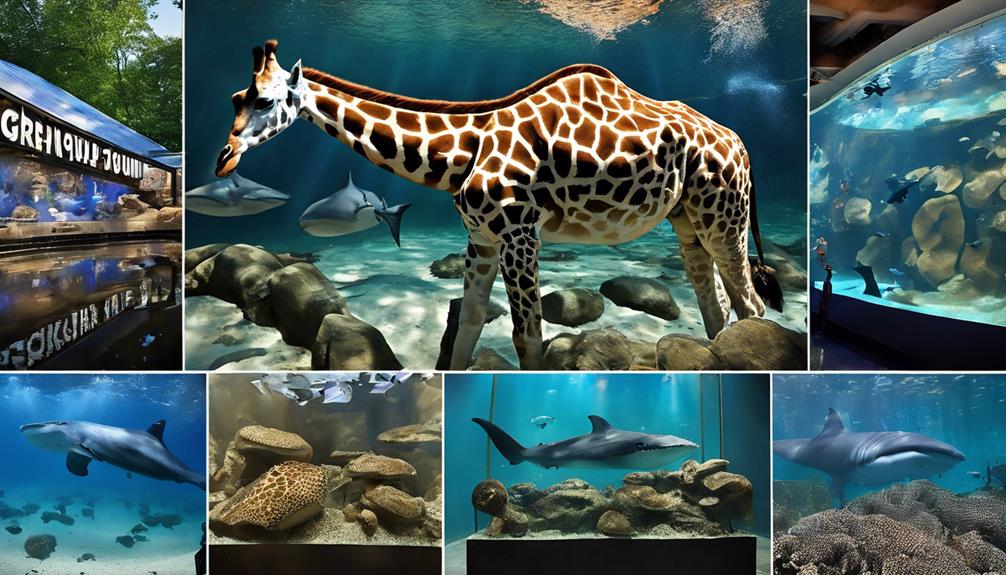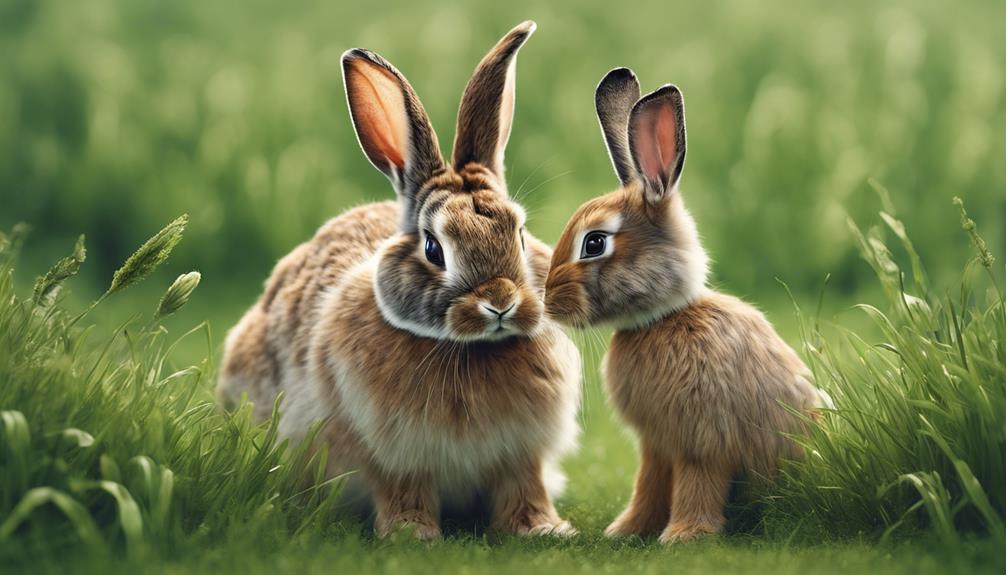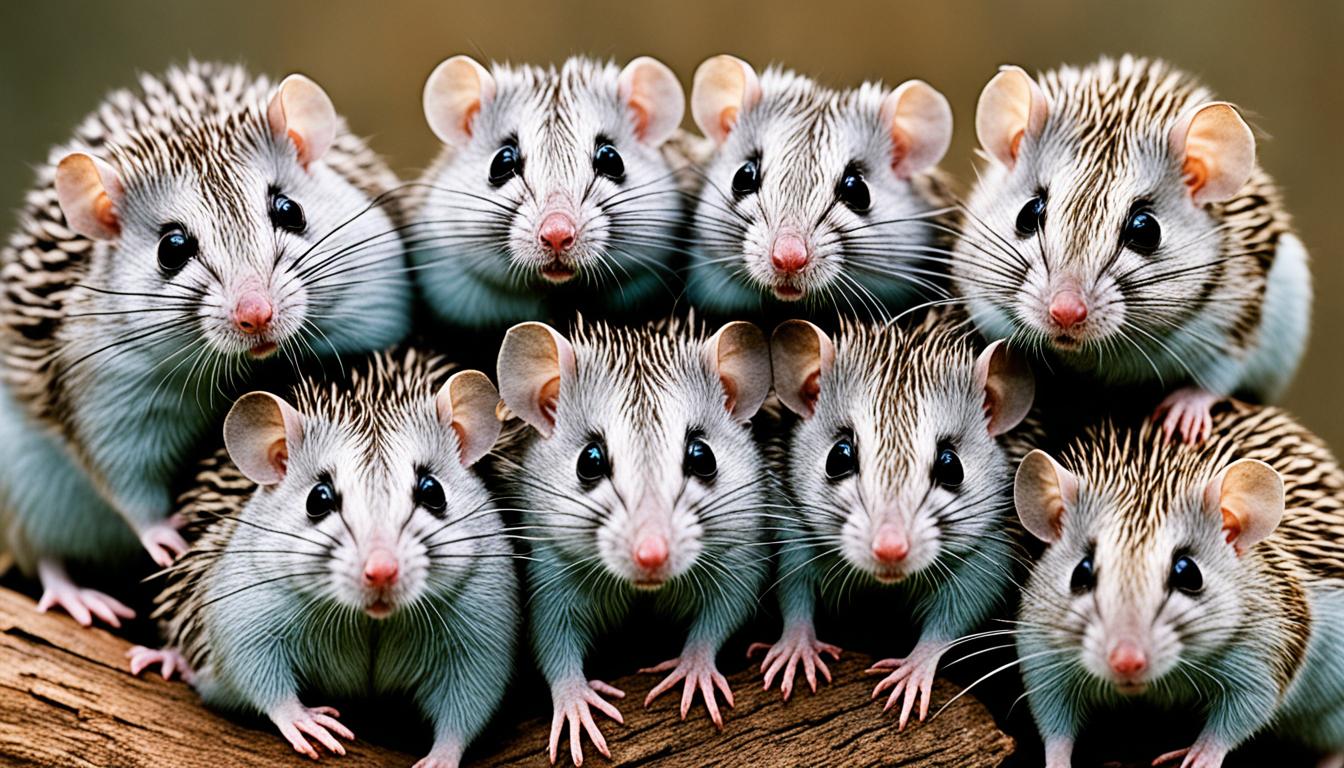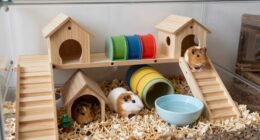In Atlanta, exciting animal encounters await. Visit the Georgia Aquarium for sea creatures galore and conservation insights. Explore Zoo Atlanta for interactive feeding experiences and behind-the-scenes tours. Discover Wild Animal Safari for a drive-through adventure with educational experiences. Escape to Yellow River Wildlife Sanctuary for diverse wildlife encounters and peaceful settings. Head to North Georgia Wildlife Park for up-close experiences with kangaroos and wolves. Explore Chattahoochee Nature Center for wild side encounters and interactive experiences. Join Fernbank Museum for prehistoric wonders. Tour Noah's Ark for rescued animals, and Southeastern Reptile Rescue for reptilian education. Finally, Atlanta Botanical Garden offers butterfly delights. Learn more about these amazing animal encounters here!
Key Takeaways
- Georgia Aquarium offers Behind the Seas Tours for insights into marine animal care and conservation.
- Zoo Atlanta provides interactive feeding experiences like giraffe feedings and behind-the-scenes tours.
- Wild Animal Safari near Atlanta offers drive-through adventures and educational experiences for all ages.
- Yellow River Wildlife Sanctuary showcases diverse wildlife species and offers petting zoo experiences.
- North Georgia Wildlife Park provides up-close encounters with kangaroos, wolves, and camels, emphasizing education and conservation.
Georgia Aquarium: Ocean Wonders Await
Ocean wonders await at the Georgia Aquarium, where visitors can immerse themselves in a world teeming with over 500 species of sea animals. The Georgia Aquarium isn't just a place to observe marine life; it's an opportunity to connect with the ocean's diverse inhabitants.
One unique experience offered is the Behind the Seas Tours, where guests can go behind the scenes to see how the aquarium cares for its animals and learn about conservation efforts. As I walked through the aquarium, marveling at the vibrant fish and majestic sea creatures, I couldn't help but feel a sense of wonder and awe at the beauty of our oceans.
The Georgia Aquarium has rightfully earned its place as one of the Top 10 Aquariums in the world, offering a glimpse into the wonders of marine life while also actively working to protect and preserve these incredible species. For anyone seeking an unforgettable adventure filled with learning and discovery, a visit to the Georgia Aquarium is a must.
Zoo Atlanta: Home to Diverse Wildlife

Zoo Atlanta is a fascinating place with a wide variety of animals, from giant pandas to lions and elephants.
The zoo offers interactive feeding experiences, like the daily giraffe feedings at 10:00 am, providing visitors with a unique opportunity to get up close with these majestic creatures.
Additionally, Zoo Atlanta showcases its commitment to conservation through its involvement in international initiatives, making it not just a fun destination but also an educational one.
Zoos Animal Diversity
At Zoo Atlanta, visitors are greeted with a vibrant array of over 1,000 animals representing more than 200 species, offering a fascinating glimpse into the diverse wildlife kingdom.
The zoo is home to a variety of animals, including giant pandas, orangutans, gorillas, lions, and elephants, creating an enthralling experience for animal enthusiasts.
With behind-the-scenes tours, guests can gain unique insights into the care and conservation efforts undertaken for these diverse animal residents.
Zoo Atlanta's commitment to education is evident through year-round special events and programs designed to engage visitors in learning about and appreciating the animal kingdom.
From the African exhibit to giraffe feedings and the reptile house, Zoo Atlanta provides a rich and immersive experience with its diverse wildlife offerings.
Interactive Feeding Experiences
Engage in an unforgettable experience by participating in interactive feeding encounters with the diverse wildlife residents at Zoo Atlanta.
One of the most sought-after experiences is the giraffe feedings, where visitors can interact with these majestic creatures up close. For a nominal cost, guests can feed the giraffes romaine lettuce, creating a memorable and engaging moment during their visit.
The interactive giraffe feeding experience is popular among visitors of all ages, with fast-moving lines that guarantee everyone gets a chance to participate. It serves as a reminder of the wild nature of these animals while providing a safe and thrilling way to engage with them.
Enhance your Zoo Atlanta visit by adding this exciting element to your wildlife encounters.
Conservation Efforts Showcased
Showcasing a diverse range of wildlife, Zoo Atlanta is actively involved in conservation efforts to protect endangered species and contribute to global wildlife preservation initiatives. The zoo's commitment to conservation is evident through various initiatives:
- Giant Pandas: Zoo Atlanta houses giant pandas, symbolizing its dedication to endangered species protection.
- Behind-the-Scenes Tours: Visitors can enjoy behind-the-scenes tours, gaining a deeper insight into animal care and conservation practices.
- International Conservation: Engaging in international conservation initiatives, Zoo Atlanta plays an essential role in safeguarding wildlife globally.
Zoo Atlanta's year-round special events not only educate the public about the significance of conservation but also provide an immersive experience that fosters a deeper appreciation for wildlife preservation efforts.
Wild Animal Safari: A Drive-Through Adventure
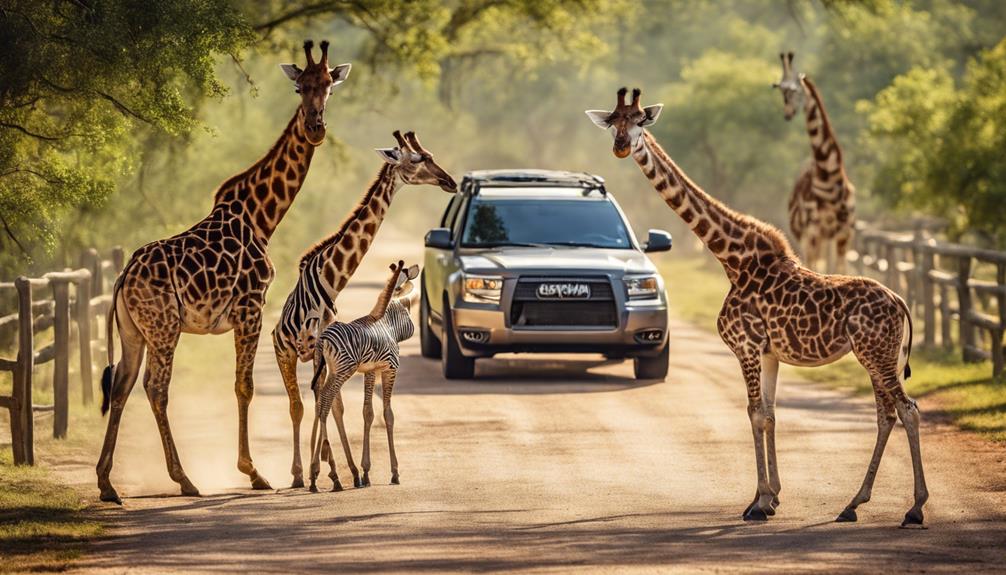
Starting the Wild Animal Safari drive-through adventure near Atlanta provides visitors an exciting opportunity to come across over 650 animals from 65 species in their natural habitats. The park offers a unique experience where you can observe these animals up close from the comfort of your car. Additionally, Wild Animal Safari provides bus tours for those who want a more detailed look at the animals and their habitats.
—
| Wild Animal Safari Drive-Through Adventure | Details |
|---|---|
| Location | Near Atlanta |
| Number of Animals | Over 650 |
| Number of Species | 65 |
| Additional Tours Available | Bus tours |
—
Wild Animal Safari is not just a fun drive; it's also an educational experience, perfect for animal enthusiasts of all ages. The park's proximity to Callaway Gardens makes it a popular destination for families looking to enjoy a day surrounded by nature and wildlife. Don't miss out on this thrilling adventure where you can witness animals in a setting that closely resembles their natural homes.
Yellow River Wildlife Sanctuary: Natures Haven

At Yellow River Wildlife Sanctuary, visitors can witness a diverse array of wildlife species, supporting conservation efforts by providing a safe haven for many animals.
The sanctuary's commitment to animal well-being and education is evident in its interactive exhibits and informative programs.
Wildlife Diversity
Nestled within the serene landscape of the Yellow River Wildlife Sanctuary lies a haven teeming with a diverse array of wildlife species.
Interactive Exhibits: Engage with bison herds, lemurs, and alpacas through interactive exhibits designed to educate and entertain visitors.
Petting Zoo: Experience up-close encounters with bears, bison, servals, kinkajous, and more at the petting zoo, where visitors can purchase feed cups for a walk-through experience.
Serene Observations: Enjoy a tranquil setting where you can observe the beauty of various animal species in their natural habitat, promoting appreciation and awareness of wildlife diversity.
Yellow River Wildlife Sanctuary offers a unique opportunity to connect with nature and learn about a wide range of fascinating animals through hands-on experiences and serene observation.
Conservation Efforts
Amidst the lush landscape of the Yellow River Wildlife Sanctuary, our dedicated conservation efforts endeavor to provide a safe haven for recovering wildlife in a natural environment. At this sanctuary, located in Lilburn, GA, we prioritize the well-being and rehabilitation of various animals. Through our conservation initiatives, we aim to create a space where wildlife can flourish and recover.
Visitors can observe a diverse range of creatures, including bison, peacocks, lemurs, and alpacas. Interactive exhibits and up-close encounters with the animals offer unique opportunities for learning and appreciation. By fostering a nurturing environment and focusing on the health and happiness of our resident wildlife, we aim to contribute to the conservation of these species for future generations to enjoy.
North Georgia Wildlife Park: Up-Close Encounters

Exploring the North Georgia Wildlife Park offers a unique opportunity to engage in up-close encounters with a fascinating array of animals, including kangaroos, wolves, and camels. The park is a haven for animal lovers seeking interactive experiences. Here are some highlights of what you can expect at the North Georgia Wildlife Park:
- Diverse Animal Encounters: Visitors can get up close and personal with a variety of animals, from the hopping kangaroos to the majestic wolves and the gentle camels. These encounters provide a chance to observe and learn about these creatures in a hands-on setting.
- Traditional Farm Experiences: In addition to the exotic animals, the park also offers traditional farm experiences. Guests can interact with farm animals and learn about daily farm routines, adding a touch of familiarity to the wildlife adventure.
- Educational Opportunities: The park prioritizes safety and education, ensuring that guests can enjoy their encounters while learning about wildlife conservation and animal behavior in an engaging environment.
Chattahoochee Nature Center: Serene Wildlife Sanctuary

Having explored the North Georgia Wildlife Park, my next stop in Atlanta led me to the tranquil Chattahoochee Nature Center, a serene wildlife sanctuary spanning 127 acres. As I stepped into this nature center, I felt a sense of calm wash over me, surrounded by the beauty of nature and the wild side of animals in their natural habitats.
—
| Wild Side Encounters | Educational Opportunities |
|---|---|
| Get up close with eagles, beavers, and snakes | Learn about wildlife through interactive experiences |
| Explore trails and boardwalks for animal viewing | Participate in feeding time experiences |
| Experience the serenity of the sanctuary | Engage in educational programs for all ages |
| Witness the wonders of nature firsthand | Discover the importance of conservation efforts |
—
Chattahoochee Nature Center offers a unique blend of tranquility and excitement, making it a must-visit for anyone looking to connect with nature and explore the diverse wildlife that calls this sanctuary home.
Fernbank Museum of Natural History: Prehistoric Encounters

Let's talk about the exciting world of dinosaurs at the Fernbank Museum of Natural History's Prehistoric Encounters exhibit.
Get ready to be amazed by life-sized dinosaurs and interactive displays that showcase the evolution of these fascinating creatures.
From fossil digging opportunities to immersive experiences, this exhibit offers a fantastic journey back in time for all ages.
Dinosaur Exhibits
Nestled within the Fernbank Museum of Natural History in Atlanta, the Prehistoric Encounters exhibit mesmerizes visitors with its lifelike dinosaur displays.
The interactive displays at the exhibit showcase a variety of dinosaur species and their habitats, providing a peek into the prehistoric world. Realistic sound effects and movement bring the dinosaurs to life, immersing guests in an engaging experience. Guests can explore the world of dinosaur fossils, learning about behaviors and the science of paleontology.
The Prehistoric Encounters exhibit at the Fernbank Museum offers a unique blend of fun and education for dinosaur enthusiasts of all ages. Explore the wonders of the ancient world right here in Atlanta!
Fossil Digging Opportunities
At the Fernbank Museum of Natural History's Prehistoric Encounters exhibit, visitors have the opportunity to engage in hands-on fossil digs to uncover ancient artifacts. This unique experience allows guests to immerse themselves in the world of paleontology, learning about Earth's history while actively participating in the discovery process.
Equipped with tools and guidance from knowledgeable staff, guests can explore the fascinating world of fossils and gain a deeper understanding of the past. By participating in fossil digging activities at the Fernbank Museum, visitors not only have fun but also engage with history in an interactive and educational way.
It's a chance to unearth the mysteries of the past and create lasting memories while learning about the wonders of prehistoric life.
Noahs Ark Animal Sanctuary: Rescued Animal Haven

Tucked away just 20 minutes south of Atlanta on 250 acres of land lies Noah's Ark Animal Sanctuary, a haven for over 1,500 rescued and rehabilitated animals. Here are some key points about this wildlife sanctuary:
- Free Self-Guided Tours: Visitors can explore the sanctuary at their own pace, observing various rescued animals in a natural setting.
- Donation Opportunities: While entry is free, donations are encouraged to support the ongoing care and conservation efforts for the animals.
- Premium Experiences: For a more personalized encounter, animal lovers can opt for premium experiences, such as behind-the-scenes tours or animal feeding sessions.
Noah's Ark Animal Sanctuary stands out as a meaningful destination for those passionate about wildlife welfare and conservation. With its focus on providing a safe haven for rescued animals and offering educational experiences, it's a must-visit spot for anyone looking to connect with nature and support a noble cause.
Southeastern Reptile Rescue: Slithering Encounters

Southeastern Reptile Rescue offers engaging educational programs highlighting various reptiles native to the Atlanta area. Through these programs, visitors have the opportunity to interact closely with a variety of reptiles, including snakes, lizards, and turtles. Not only do these encounters provide a hands-on experience, but they also serve to educate participants about the importance of reptiles in the ecosystem. By promoting conservation efforts and raising awareness about these often-misunderstood creatures, Southeastern Reptile Rescue plays a pivotal role in safeguarding their habitats.
During these educational programs, guests can learn about the unique characteristics of each reptile species and gain a deeper understanding of their role in the environment. By fostering a connection between people and reptiles, the rescue aims to instill a sense of appreciation and respect for these fascinating creatures. Through these initiatives, Southeastern Reptile Rescue not only provides an unforgettable experience but also contributes to the conservation of reptiles in the Atlanta area.
Atlanta Botanical Garden: Fluttering Friends

Nestled within the Atlanta Botanical Garden awaits the enchanting 'Fluttering Friends' exhibit, showcasing a vibrant array of colorful butterflies. As I step into the greenhouse, I'm immediately surrounded by fluttering beauties from various species and regions. Here's what makes this butterfly exhibit a must-see:
- Diverse Species: The exhibit houses a diverse collection of butterflies, each with its unique colors and patterns, creating a mesmerizing sight for visitors.
- Interactive Experience: Walking through the greenhouse allows for up-close encounters with these delicate creatures. Observing their graceful flight and intricate wing patterns up close is a truly magical experience.
- Educational Opportunities: For those interested in learning, the exhibit offers insights into butterfly habitats and behaviors. It's a fantastic chance to deepen your understanding of these fascinating insects and their importance in the ecosystem.
The 'Fluttering Friends' exhibit at Atlanta Botanical Garden promises a serene and enlightening experience for all nature enthusiasts and butterfly lovers.
Frequently Asked Questions
What Are the Predators in Atlanta Ga?
In Atlanta, GA, predators like coyotes, red foxes, bobcats, and owls roam urban and suburban areas. Coyotes hunt small mammals and pets, while red foxes target rabbits and birds. Bobcats lurk in green spaces, preying on small animals, and owls help control rodents with stealthy hunting.
What Animals Is Atlanta Known For?
Atlanta is famous for its diverse animal offerings, from giant pandas at Zoo Atlanta to sea creatures at the Georgia Aquarium. The city also boasts unique encounters with farm animals and exotic species, making it a hub for animal lovers.
What Are the Most Common Animals in Georgia?
Oh, you want to know about Georgia's critters? Well, deer, squirrels, otters, birds galore, reptiles slithering, and frogs croaking. Don't forget the fish! Bass, catfish, turtles, oh my! Georgia's wildlife party never stops!
Where Can I See Capybara in Georgia?
I can see capybaras at the North Georgia Wildlife Park in Cleveland, Georgia. There, visitors can encounter these fascinating creatures in a traditional farm setting, providing a unique opportunity to observe and learn about them up close.
Conclusion
So whether you're exploring the depths of the ocean at the Georgia Aquarium, getting up close and personal with wildlife at Zoo Atlanta, or experiencing a drive-through adventure at Wild Animal Safari, Atlanta offers a variety of animal encounters for all to enjoy.
From rescued animals at Noah's Ark Animal Sanctuary to fluttering friends at the Atlanta Botanical Garden, there's something for everyone to experience and learn from in the vibrant animal kingdom of Atlanta.
